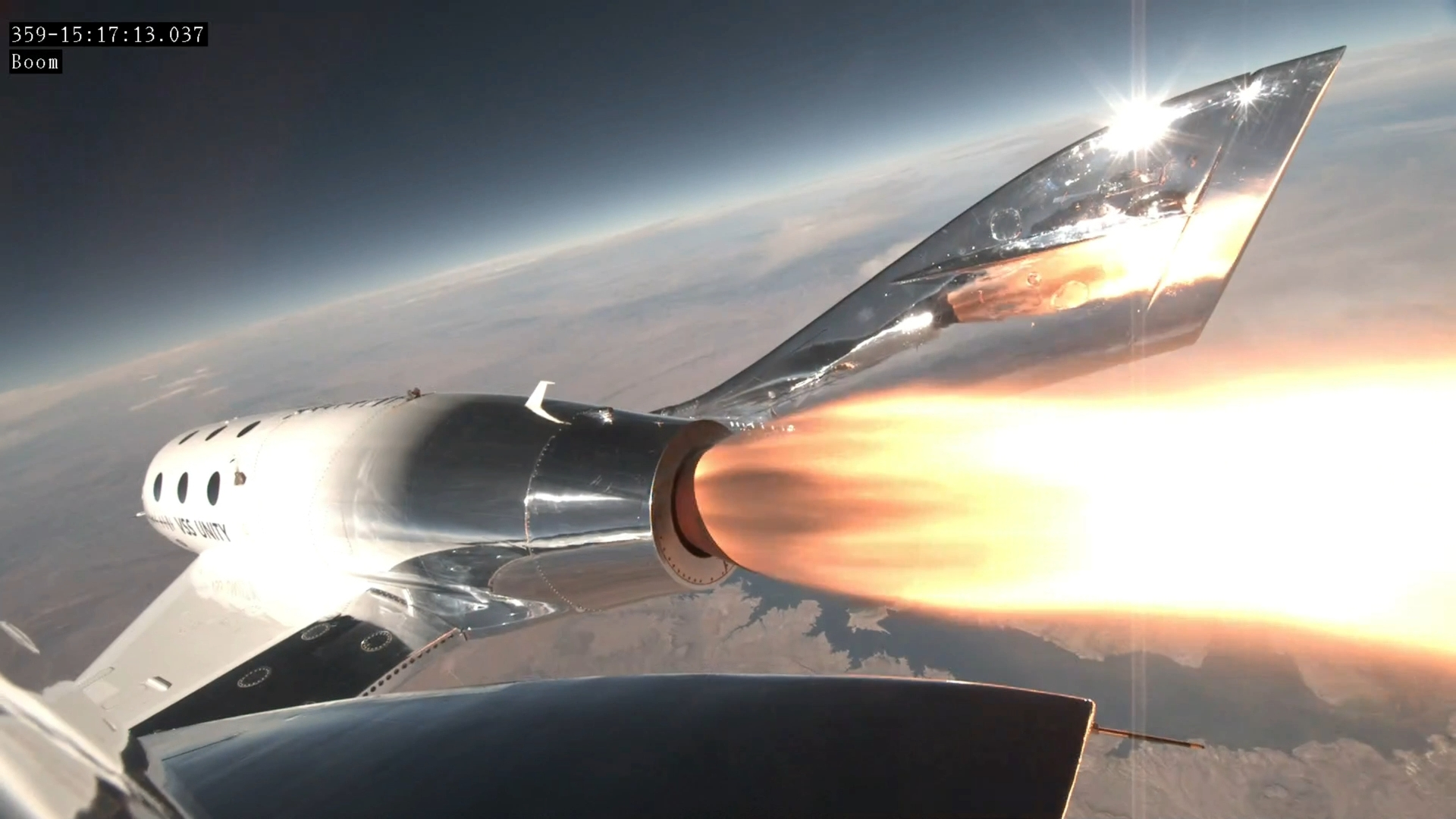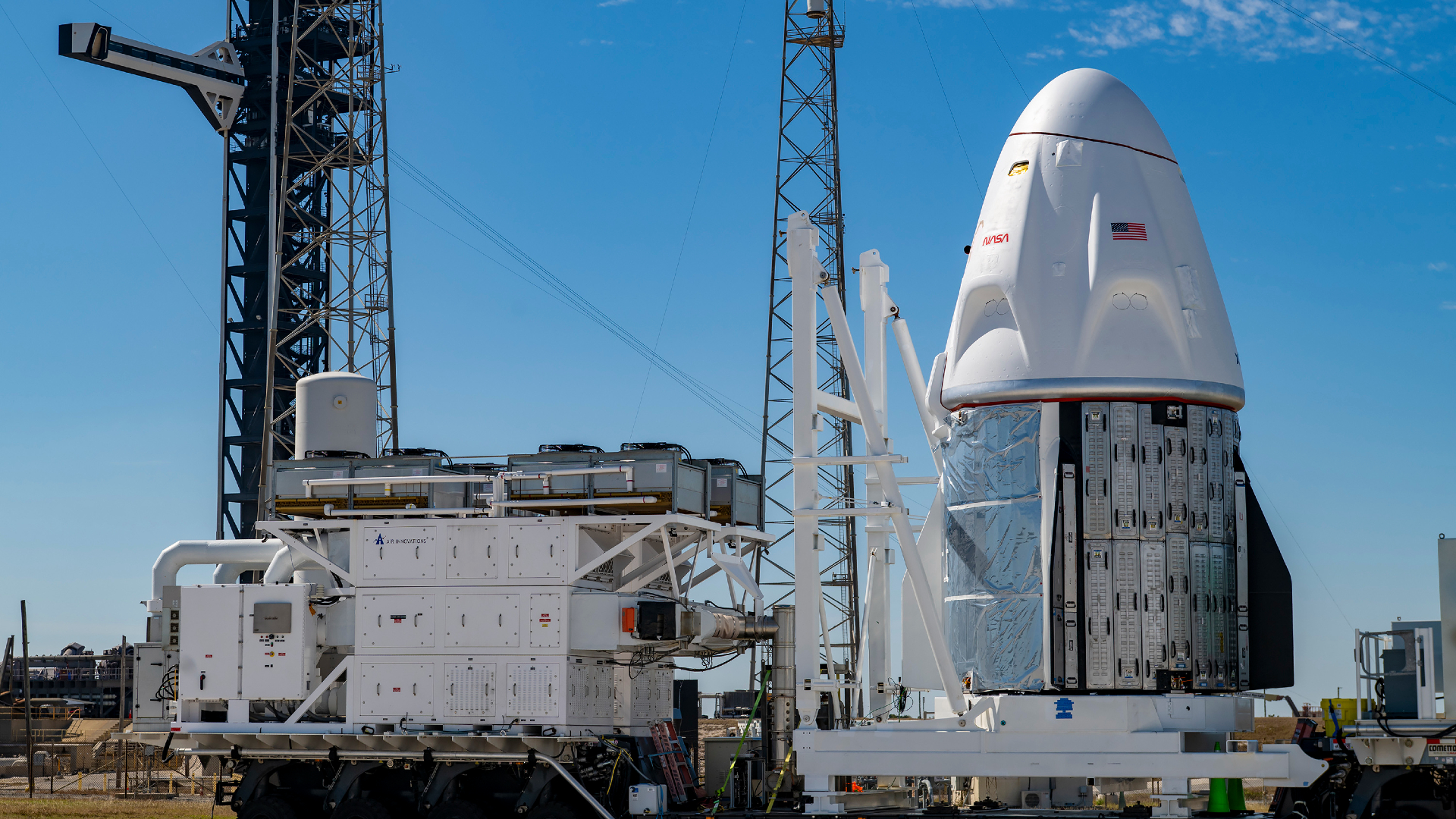Virgin Galactic sets date, announces crew for 5th commercial spaceflight
The company's sixth flight in as many months features two names space fans may recognize.

Breaking space news, the latest updates on rocket launches, skywatching events and more!
You are now subscribed
Your newsletter sign-up was successful
Want to add more newsletters?

Delivered daily
Daily Newsletter
Breaking space news, the latest updates on rocket launches, skywatching events and more!

Once a month
Watch This Space
Sign up to our monthly entertainment newsletter to keep up with all our coverage of the latest sci-fi and space movies, tv shows, games and books.

Once a week
Night Sky This Week
Discover this week's must-see night sky events, moon phases, and stunning astrophotos. Sign up for our skywatching newsletter and explore the universe with us!

Twice a month
Strange New Words
Space.com's Sci-Fi Reader's Club. Read a sci-fi short story every month and join a virtual community of fellow science fiction fans!
Virgin Galactic's next trip to the edge of space will include some familiar names.
The company announced on Wednesday (Oct. 18) that Galactic 06, its fifth commercial spaceflight, has a flight window that opens on Nov. 2, 2023. The flight will be Virgin Galactic's sixth spaceflight in as many months and will see its reusable space plane VSS Unity reach an altitude of about 54 miles (87 kilometers) above Earth, enough for its passengers to experience weightlessness and see the blackness of space.
Those passengers will include an unnamed private astronaut of Franco-Italian nationality; planetary scientist Alan Stern, the principal investigator of NASA's New Horizons Pluto mission, and Kellie Gerardi, a science communicator and bioastronautics researcher for the International Institute for Astronautical Sciences (IIAS). Both will be conducting research during the flight related to the effects of spaceflight on the human body, while Stern will also "conduct practice activities for an astronomical experiment" set for an upcoming NASA flight, according to a Virgin Galactic statement.
Related: Virgin Galactic launches 1st Pakistani to space on 4th commercial spaceflight (video)
Stern, who has overseen one of NASA's most ambitious spaceflight missions for years now, said he's looking forward to finally making the trip into space himself.
"After years of sending machines to conduct research on my behalf, I'm thrilled to be making this maiden spaceflight," Stern said in the Virgin Galactic statement. "What sets this flight apart from others, and which likely represents a new kind of space activity, is that more than anything else I will be training — in space — for future space experiments I will be performing with NASA funding."
Meanwhile, Gerardi said the mission represents not only a lifelong dream but the beginning of a new era in which space is within reach for researchers. "I'm grateful for the support and confidence that IIAS continues to place in me, and I'm looking forward to paving the way for our many talented researchers who will follow, using space as a laboratory to benefit humanity," Gerardi said, on behalf of IIAS.
Breaking space news, the latest updates on rocket launches, skywatching events and more!
Virgin Galactic's space tourism flights use a "mothership" aircraft, VMS Eve, to carry its space plane VSS Unity to an altitude of around 50,000 feet (15,240 meters) before releasing it. Unity's rocket engine then ignites, carrying the space plane toward suborbital space at nearly three times the speed of sound.
Its most recent flight, Galactic 04, launched the first Pakistani to space on Oct. 6. Less than two months prior, Galactic 02 saw the first mother-daughter duo and the youngest person ever get lofted to the final frontier.

Brett is curious about emerging aerospace technologies, alternative launch concepts, military space developments and uncrewed aircraft systems. Brett's work has appeared on Scientific American, The War Zone, Popular Science, the History Channel, Science Discovery and more. Brett has degrees from Clemson University and the University of North Carolina at Charlotte. In his free time, Brett enjoys skywatching throughout the dark skies of the Appalachian mountains.
